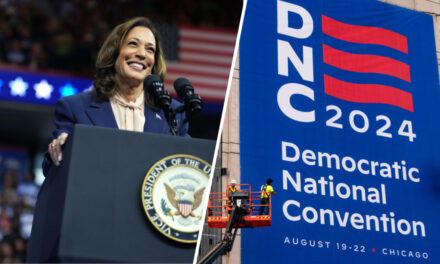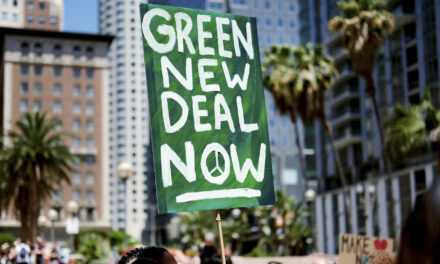
NAFTA – Scrapped or Enhanced? Here's What We Know
Trump has formally told Congress that he wants the U.S. to renegotiate the North American Free Trade Agreement (NAFTA.)
The U.S. Trade Rep, Robert Lighthizer wrote a formal letter to Congress alerting them of Trump’s plans.
“Today, President Trump fulfilled one of his key promises to the American people. For years, politicians have called for the renegotiation of this agreement, but President Trump is the first to follow through with that promise,” said Ambassador Lighthizer in the letter. “USTR will now continue consultations with Congress and American stakeholders to create an agreement that advances the interests of America’s workers, farmers, ranchers, and businesses.”
The renegotiation will be a process and will start with roughly 90 days of domestic consultations.
The negotiations will begin the earliest by August 16, 2017 and 30 days before the official discussions between the North American countries start, the administration will have to submit a detailed list of objectives for the negotiation.
Although Lighthizer’s letter offered few details about Trump’s goals, his negotiating team has alluded to some of the issues they plan to address.
“Since the signing of NAFTA, we have seen our manufacturing industry decimated, factories shuttered, and countless workers left jobless,” said Commerce secretary Wilbur Ross, who will be leading the team. “President Trump is going to change that.”
Trump, who often referred to the trade deal as a disaster, has blame it for inflating the trade deficit. Trump’s team will likely aim to cut the high trade deficit with the new refurbish NAFTA deal.
Last month, Trump formerly said he wanted to completely withdraw from the 1994 agreement. This may have been the start of his negotiation technique because after he said he was open to renegotiation, but would easily back out if the U.S. didn’t get a fairer deal.
Lighthizer also said that currency issues may also be addressed in this NAFTA revamp.
“U.S. Trade Representative Robert Lighthizer said in a Senate meeting Wednesday that he is looking at currency rules as a part of planned renegotiation of Nafta, the 23-year-old trade agreement that connects the U.S. economy with Canada’s and Mexico’s, the aides said,” writes Fox Business.
“An administration official confirmed the U.S. is looking at some sort of currency disciplines but didn’t say whether the rules would be binding and enforceable through Nafta’s dispute-settlement procedures.”
This is interesting because it looks like the Trump administration is trying to set a precedent to include currency rules for future negotiations, like ones with China and other Asian trading partners, who have been accused of manipulating currency.
“It is highly controversial, but I think it does make sense,” said Fred Bergsten, co-author of an upcoming book about currency manipulation. “The link between exchange-rate movements is very clear and very substantial. It’s a lot more important than many of the other things that have been linked to trade policy.”
“Other issues expected to come up in Nafta talks include so-called rules of origin, which dictate the amount of North American-made parts that must be used in assembled products such as cars. The U.S. has also indicated it would like to overhaul the process under which foreign companies can be challenged in court by the state, and strengthen the ability of government contracts to give preference to U.S. companies,” writes Newsmax.
Author’s note: Add this negotiation to the long list of promises Trump has kept. It’s going to be a process, but he should be able to leverage his business background to get us a better deal. The media should be all over this, but of course several outlets are still distracted with Comey drama, etc.
Editor’s note: When I was in business school studying international trade in the 1990’s, NAFTA was always considered the best thing since sliced bread. It all seemed so logical, the greater efficiencies, the opportunities to sell around the the world. And these factors were all true. However our politicians never seemed to hold the line, many of them, especially Obama seemed to give away our advantages. NAFTA was never a bad deal, but it has been thoughtlessly and inexpertly managed. No treaty stands still in time, situations evolve. Time to re-negotiate.

























You have blown Fox's trumpet in the past and confirmed what is common knowledge. It only proves the gullible minds…
Our president has led of clue about what POTIS is in governing this country as one of three branches representing…
Gregor, thanks for saying please, butt alas: NO. It’s just talk. Just facts. I can understand they make you feel…
"It is not my custom to engage in ad hominem pejorative insults. " hahahahahahahahhahahahahaha " Is that a Nazi salute…
This guy actually launched his wife into Space. This the start of every joke in the sixties! But a 150K…